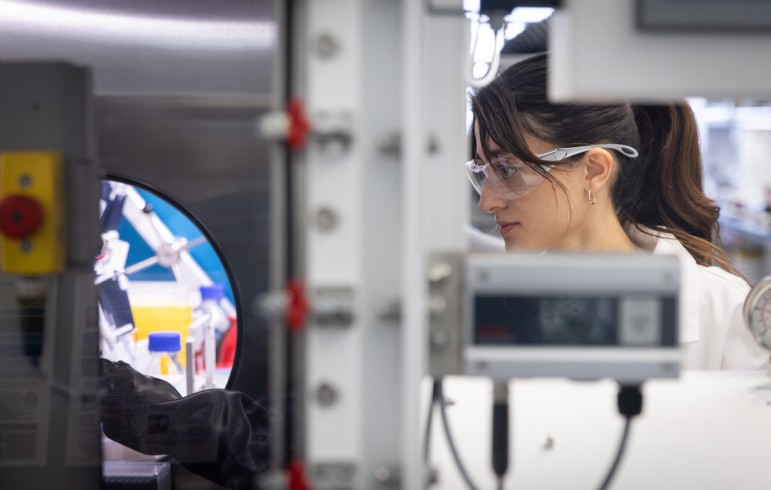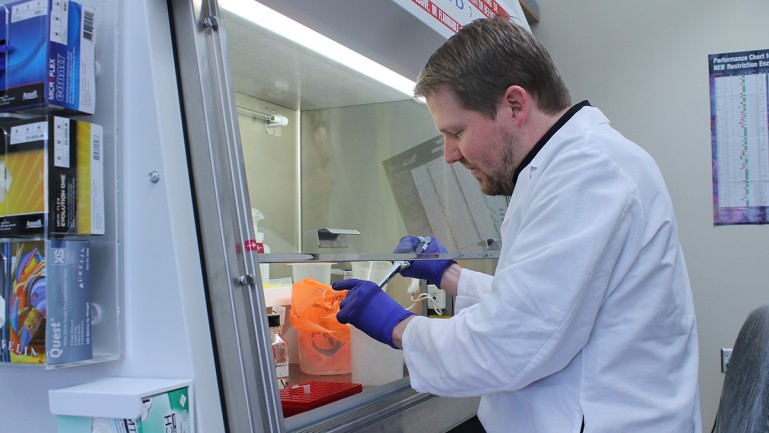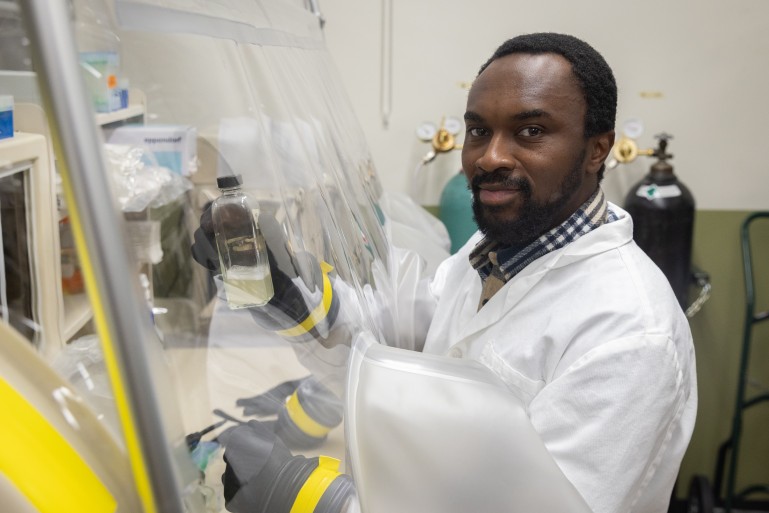An associate professor of bacteriology at the University of Wisconsin–Madison, Amador-Noguez uses systems-level analyses – including metabolomics, computational modeling, and genetic engineering – to advance understanding of metabolism in microorganisms capable of producing biofuels.
Grace Gooley is a senior at the University of Wisconsin–Madison majoring in chemistry and environmental studies. She’s working on her senior thesis in the Ive Hermans lab, where research focuses on the sustainable synthesis of chemicals using catalysts with the goal of producing commercial compounds in ways that generate less waste, consume less energy, or emit less greenhouse gases than existing techniques.
Blaise Manga Enuh, a postdoctoral researcher with the Great Lakes Bioenergy Research Center, published an essay in The Conversation about his work on a genome-scale metabolic model of Novosphingobium aromaticivorans, a bacterium that can convert very complex chemicals in plant waste to valuable bioproducts.
University of Wisconsin–Madison researchers are blanketing the state with automated weather stations in an effort to put more timely and accurate data into the hands of public officials, forecasters, and residents.
Junior biology major Lizza Korolev is an undergraduate research assistant in the Sato lab, where she studies yeast with the goal of developing strains that can ferment sugars in switchgrass into sustainable biofuels.
A Wisconsin Energy Institute investigator and two energy experts are among the University of Wisconsin–Madison faculty and students honored in 2024 by the Wisconsin Alumni Research Foundation for their innovations.
University of Wisconsin–Madison researchers will use a 15-acre solar installation at the university's Kegonsa Research Station to study how photovoltaic energy production affects the underlying soil and how that land can be used to grow crops or feed animals.



